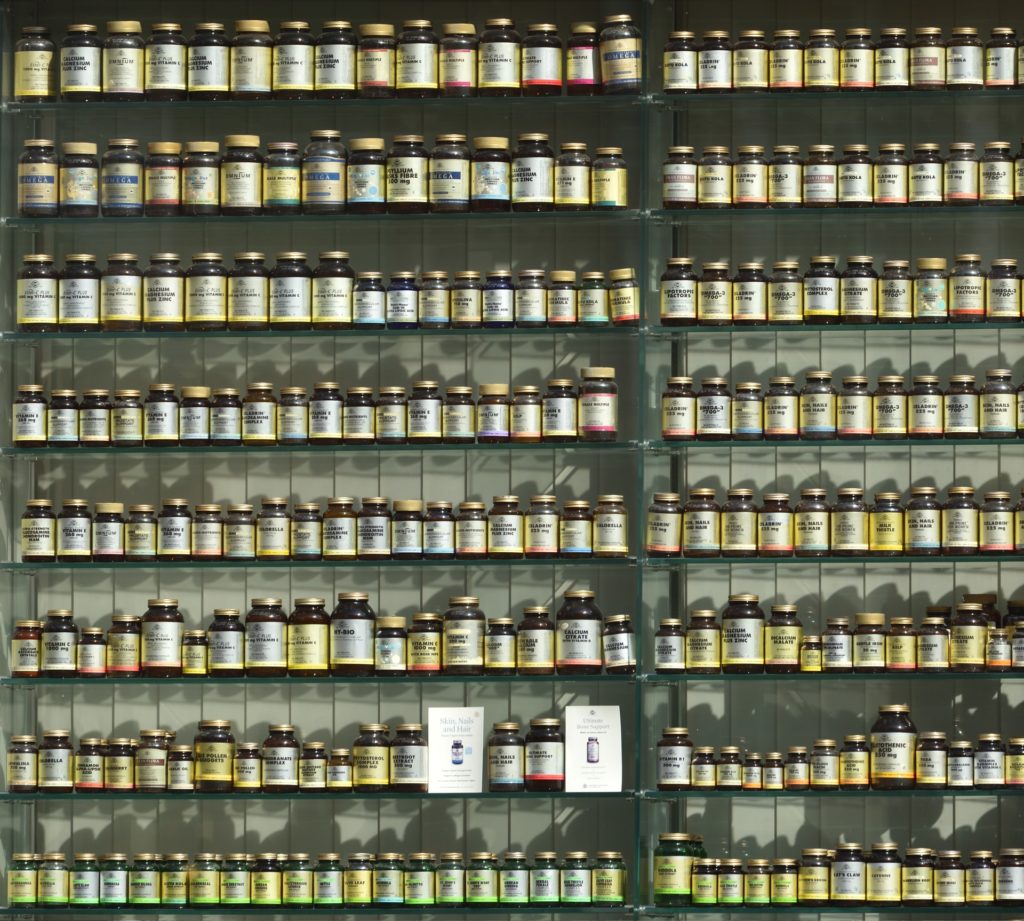food supplements
a daily companion for many people
How are these food supplements legally classified?
Within the harmonized EU market, food supplements (NEM) fall under food law in accordance with the (food) Basic Regulation (EC) 178/2002 and are accordingly strictly regulated.
Article 2 postulates: “For the purposes of this Regulation, ‘food’ (or ‘foodstuff’) means any substance or product, whether processed, partially processed or unprocessed, intended to be, or reasonably expected to be ingested by humans.“
The responsibility for the safety of these preparations lies with the so-called food business operator, i.e. the actor who puts the item on the market (makes it available on the market for the first time). The far-reaching definition of food companies includes not only commercially active economic operators but also private, natural persons, even if they do not intend to make a profit. Even giving away the tomatoes grown on the terrace free of charge, or even just keeping them ready, unconsciously turns the hobby gardener into a food entrepreneur de lege lata.
Within this general legal framework for food, the European legislator has created a framework for special foods with the Food Supplements Directive 2002/46/EC.
These are products that contain concentrated amounts of nutrients or other substances that are intended to supplement normal nutrition. These substances must have a nutritional or physiological effect and be put on the market in a specially dosed or dosed form. This can take the form of capsules, tablets, pills, lozenges, powders, ampoules or even bottles with dropper inserts.
In addition, a dense regulatory network was set up and further European harmonized regulations established (links all lead to the consolidated versions):
(EC) 1925/2006 addition Regulation
(EC) 1925/2006 addition Regulation
(EC) 1924/2006 nutrition Regulation
(EU) 1169/2011 food information Regulation
(EU) 609/2013 food intended for infants and young children, food for special medical and diets purposes Regulation
(EU) 2015/2283 novel food Regulation
Due to their legal character, they apply directly in every EU member state and thus have a great harmonizing effect. Nevertheless, this “jungle of regulations” with different characteristics, objectives and amendment dynamics sometimes causes confusion among practitioners.
In addition to the fragmentation into various legal acts, the classification of the substances used regularly causes problems in practice and is consequently often the subject of disputes in competition and administrative law proceedings.
Which ingredients can be used?

However, specifications regarding recipe labeling are only made for vitamins and minerals (Annex I) and the substances used as their sources (Annex II). There are currently no mandatory maximum or minimum quantities for the ingredients of food supplements specified in the European Union.
For ingredients that are neither vitamins nor minerals, the EU Commission has issued the special harmonized regulations outlined above to protect consumers from possible health risks. Here, substances may have to undergo an authorization, acc. to the (EU) 2015/2283 novel food Regulation or at least a notification. It also maintains a “Novel Food Catalog” list of substances which are known or suspected of having harmful effects on health and whose use is therefore monitored
In addition to the substances that are added for nutritional purposes, food supplements can also contain food additives, i. H. Substances that are added to the products for technological reasons (e.g. coating agents for tablets, sweeteners). Regulation (EC) 1333/2008 on food additives provides a list of the additives that are approved for use in food supplements.
Substances whose use in food is prohibited or subject to restrictions or whose use is being examined are listed in Annex III of Regulation(EC) 1925/2006 on addition info.
Substances that do not fall into the above-mentioned categories can, subject to the provisions in the specific national legal provisions, still be contained in food supplements and possibly offered on national markets in the EU member states.
Which labeling is mandatory for food supplements?
The directive on food supplements 2002/46/EC extends to all food supplements regarding the general labeling requirements. In addition, the above legal framework results in further labeling requirements (list is not exhaustive):
- designation as a food supplement
- EU food business operators
- list of ingredients
- additives
- quantities (Directive 76/211/EEC)
- best before
- lot / batch number
- nutrition declaration
- note on daily consumption
- warning notice “daily dose”
- warning notices “no substitute for a varied diet”
- warning notice “reach small children”
- no unproven “health claims”
- information on storage and use
- legibility, language, durability
The so-called “health claims” must not attribute any properties to foodstuffs in their presentation or advertising that serve to prevent, treat or cure a human disease, or refer to such properties. Among other things, this serves to distinguish it from medical device law and drug law and, finally, preventive consumer protection.
Who controls compliance with the legal minimum requirements?
Placing food supplements on the market is the responsibility of the manufacturer, importer, supplier or dealer. This group of actors is responsible for ensuring that a food supplement placed on the market is safe.
As in other product law areas, there is a network of competent market surveillance authorities which monitor the manufacture, import and trade of NEM. In order to facilitate the controls and to be able to identify unsafe products at an early stage, there is an obligation to notify before an NEM is placed on the market within the territory of the respective EU member state.
Conclusion
The distributors are faced with a complex set of rules, the protective purpose of which is preventive health and consumer protection, which is strictly controlled.
If you ignore it, you are exposed to a not inconsiderable legal risk. There is a threat not only of bans on the sale of goods, monetary or criminal sanctions, but also warnings that damage the company’s reputation, e.g. via the relevant RASSF Portal of the EU Commission.
Even if this food area does not fall under the New Legislative Framework (NLF) – which is very regrettable – the new Market Surveillance Regulation (EU) 2019/1020 does not apply here, it is also determined in eCommerce and on other platforms. Here it is increasingly the fulfillment service providers (like Amazon) and marketplace operators (like eBay) who control the requirements more closely. In general, competitors and consumer protection organizations also ensure regular civil law court proceedings.
Every responsible food business operator, including those who bring food supplements into the market, would do well to find out about the minimum legal requirements before placing supposedly safe products on the market.
Technical documentation and laboratory tests, preferably in English due to their EU-wide recognition, are urgently required for this. It is also advisable to check the labeling, as packaging law and product law collide here.


